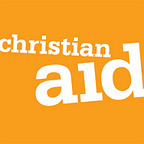Five ways our maternal health work is a life-saver for Malawi’s mums and babies
Christian Aid and our partners are on a mission to cut the number of mothers and babies who die during pregnancy and childbirth in Malawi’s Karonga District, writes Tomilola Ajayi.
Despite progress in recent years, Malawi has some of the world’s highest maternal and newborn death rates: for every 100,000 births, 675 women lose their lives (compared to nine in the UK).
We’ve been running a three-year maternal health scheme in Karonga District, to tackle the root causes of this problem. We’re working with two partners: Adventist Health Services and Foundation for Community Support Services.
Together, we’re helping to make a difference. Last year Karonga District went six months without any recorded maternal deaths: a major achievement. ‘This just shows the impact the project is bringing,’ says our Senior Programme Officer for Community Health, Seminie Nyirenda.
This is only possible thanks to your support for our 2014 Christmas appeal, where the UK Government’s Department for International Development doubled all eligible donations, through its UK Aid Match funding initiative.
Here’s how we’ve been making a difference with these UK Aid Match funds:
1. Training hospital workers to handle emergencies
Karonga District Hospital serves a catchment area of over 325,000 people. As the district’s main medical hub, it is a key ally in our work.
Our partner has trained 30 maternal health personnel at the hospital in ‘Basic Emergency Obstetric and Neonatal Care’, giving them the tools to treat serious complications that can threaten the mother and baby’s life.
‘Before the training, we weren’t able to do certain things. For example: helping babies to breathe; managing post-partum haemorrhages (when women bleed heavily after giving birth), and doing breech deliveries (when the babies come out feet first). Now I can do those things competently.’ — Wezzie Msowoya, hospital nurse.
‘The improvement has been tremendous. We used to have preventable deaths due to lack of knowledge among some nurses and clinicians. But this training has enriched them… it has reduced the number of maternal deaths.’ — Salim Yussuf, hospital nurse
2. Running health clinics in hard-to-reach areas
Two-month old Joseph sleeps soundly in a sling, while his mother Maisie waits outside a modest brick building. Maisie has brought him to be immunised and weighed at an ‘outreach’ clinic in Kasimba village, a remote part of Karonga.
The monthly drop-in clinic offers a set of integrated services for pregnant women and mothers. These include HIV testing and counselling, immunisations, antenatal sessions, postnatal care, malaria tests, family planning services and check-ups for under-fives.
With the nearest health centre some distance away, the Kasimba clinic means infants, mothers and pregnant women can get good health support, within walking distance of their homes. It’s one of 15 integrated outreach clinics being run by our partner across the district.
‘Because of this assistance I am very happy: it has helped me to save money on transport, and save time,’ — Maisie Karango.
3. Retraining traditional birth attendants
‘I did it out of passion and because it was the job my grandma left me.’ Mbaububo Gumbo explains how she came to be a traditional birth attendant (TBA), caring for pregnant women and helping them deliver at home.
The use of TBAs is a deeply entrenched custom, and a factor in Malawi’s high maternal death rates. Without medical training and tools, TBAs were limited when it came to dealing with pregnancy or childbirth related complications.
As part of a nationwide drive, we’re training dozens of TBAs like Mbaububo to take on a new role as a Mother Advisor — champions of safe, skilled deliveries. Now, Mother Advisors are referring pregnant women for antenatal and postnatal care, helping them to access medical services, giving them health advice and accompanying them to health facilities when they go into labour.
‘Before, as TBAs, we did the deliveries without [medical] training. It had its dangers. Now, of the 20 women I have referred to the hospital, nobody has died. The project is helping to reduce maternal deaths in the community. We are very happy.’ — Mbaububo Gumbo, Mother Advisor.
4. Using text messages to care for pregnant mums
We’re using mobile technology to connect pregnant women in remote areas with formal health services, making sure they’re properly cared for.
How? We’ve installed a special ‘Telerivet SMS system’ on a computer at Chilumba Rural Hospital. When a pregnant woman’s details are registered on the system, it starts sending texts to her mobile phone. Each message contains maternal health advice — from antenatal and postnatal appointment reminders, to advice on vaccinations, nutrition and hospital deliveries.
This innovative scheme has reached 5,000 women so far: now, attendance at antenatal sessions have risen and home deliveries have dropped in the area.
‘The messages helped me to have a safe delivery. Getting the SMS reminders on antenatal checks was so important. I was sick during the pregnancy, but the messages I received encouraged me to visit the hospital.’ — Agatha Mhango, mother of three.
5. Donating equipment, renovating run-down medical centres
After Rose Mwanberhire gave birth at a small, rural hospital, she suffered a serious haemorrhage and began bleeding heavily. With the medical team unable to treat her, Rose was swiftly transferred to Karonga District Hospital, in an ambulance donated by our programme. There, she was treated and given a blood transfusion. It saved her life.
We’ve supplied other equipment to Karonga hospital, including patient trolleys, wheelchairs and an ultrasound machine. With our partners, we’re also helping to renovate run-down medical centres.
‘Previously, we only had one ambulance. It was very difficult for us to pick up a pregnant woman at one of our furthest health facilities. Now that Christian Aid has given us an ambulance, we are seeing tremendous improvements.’ — Maloni Nyirenda, Karonga District Nursing Officer.
